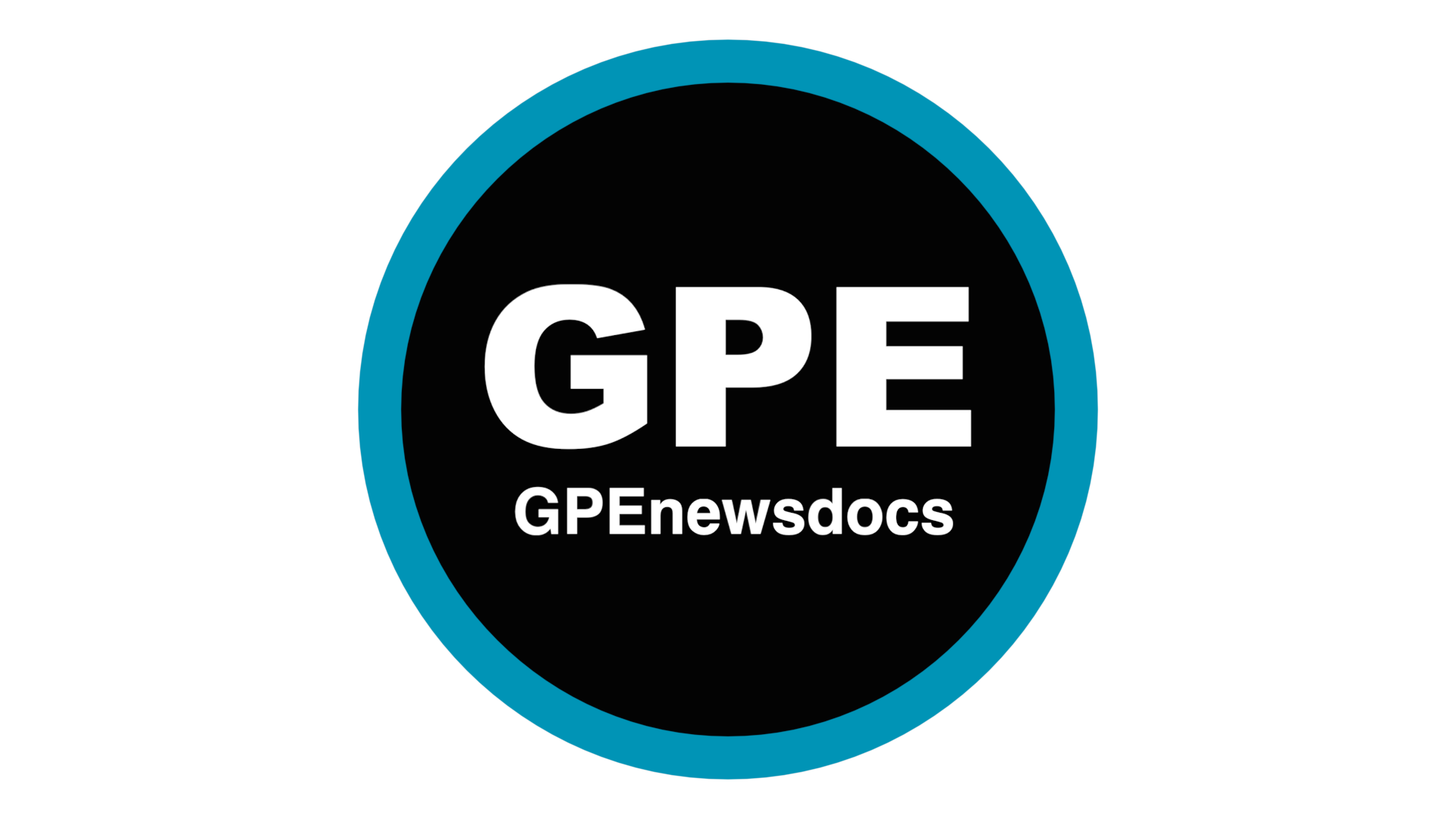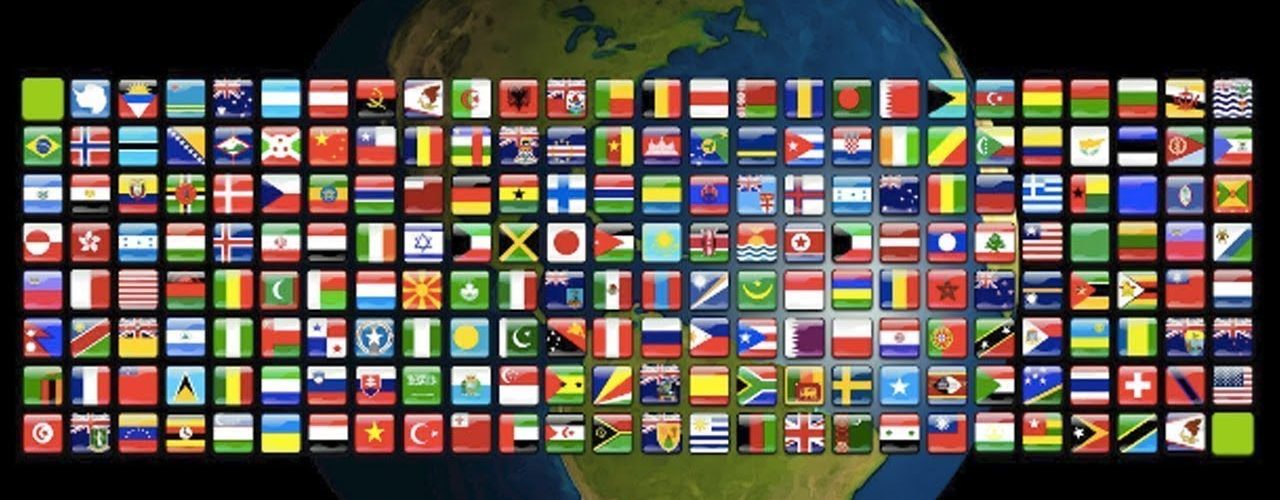No stakeholder-based global governance system comes close to matching the democratic legitimacy of a citizen-based and nation-state-based governance system, says Harris Gleckman, who advocates three alternatives to the current corporate-driven multi-stakeholder system and its self-selected global governors. A public debate on pro-democracy alternatives is imperative, argues Harris Gleckman, author of Multistakeholderism and Democracy: A Global Challenge.
May 24, 2019 Produced by Lynn Fries
TRANSCRIPT
HARRIS GLECKMAN: We are facing a number of different challenges in the world, a number of different crises. And I think we have to be honest with ourselves that that is an opportunity of one order, and a challenge of historic proportions in another. We shouldn’t pretend that these are casual or simple issues. But that shouldn’t scare us from attempting to address them. We need to avoid creating catastrophes of the sort of major wars in order to develop a better system of governance. If we put democracy at the central point of that conversation, and we say to ourselves, what is the way in which we would like to govern global human rights, in which we would like to govern the global ecology which we would like to govern the issues that would reduce economic inequalities in the world? And we then build in our minds and in our public conversations the way forward in this process. I think it can be done. I think it can be done in conjunction with addressing the crises themselves head on.
LYNN FRIES: It’s The Real News. I’m Lynn Fries. And that opening clip was from Q&A with Harris Gleckman on his book Multistakeholder Governance and Democracy: A Global Challenge. This is Part 2 of a report on that conversation. Harris Gleckman is senior fellow at the University of Massachusetts Center for Governance and Sustainability, and director of Benchmark Environmental Consulting. We’re going to pick up the report where we left off.
In 2010 you noted that that’s when the World Economic Forum project called the Global Redesign Initiative was published, and that by a chance remark from a former colleague, you read it.
HARRIS GLECKMAN: Davos brings together a very powerful collection of the world’s elite. In effect, what Davos realized is that their annual meetings, which take place in Davos, which is where it gets its name from, but more importantly, they have regional meetings all over the world where they invite in the corporate members. They pay a lot of money. But they invite in leading civil society people. They invite in leading legal authorities, media people, actors, civil society leadership from the North and the South for their meetings. In some ways what the Davos Global Redesign Initiative is, in their own words, was to take the Davos experiences and apply them at a global level.
And that is one of the ways in which the Global Redesign Initiative, which was done by inviting in some 700 different people working a year and a half to produce a 600-page proposal with lengthy examples, and circulated it within that space. And so I was very fortunate to have met a colleague who said, look, you should take a look at this, because this is a new dynamic. That may be a challenge to multilateralism. And after examining it carefully, and producing an online reader’s guide to it, which remains on the website of the University of Massachusetts in Boston, it became clear that it could not be, or was even less democratic, than where we were at the moment, but had the power of incorporating, co-opting, other sectors of society into global leadership.
LYNN FRIES: So basically you shared the view with the World Economic Forum that a new form of global governance was necessary, but not that multistakeholderism should be the foundation for the next form of global governance. Is that right?
HARRIS GLECKMAN: Yes. And I think it’s important, Lynn, to understand where our shared interests are and our shared analysis is, and why the outcome that they propose doesn’t work. Our shared area is to recognize we share a common view that the transnationals currently set the global rules and practices by themselves. And that’s not what’s usually taught in international relations courses or in the public media, where the higher attention is given as if governments are able to exercise control over these multinationals and the world economy. But it’s also the case that increasing numbers of non-military global problems need a different structure.
The volunteerism around climate change in Paris and in Copenhagen is not strong enough to address the issues as crucial as the impact of climate, and how to respond to our behavior about the climate. It’s also the case that that’s true about some newer technologies which are not being governed nationally. They’re being moved out of the space of countries into Internet governance, nanotechnology governance, geoengineering governance. And so where the issue is is that these things need new systems for global governance. But the idea that a relatively self-selected group, and largely self-interested group, is given the public space to be the global governors of a particular area, that doesn’t even have a flavor of democracy, let alone a democratic character.
LYNN FRIES OK. So after the catastrophes of World War I and II, a plan was put in place to address the government failures of the day, and that today’s governance failures invite a similar response, and that the international community has an opportunity to build a global democratic governance plan for the next 50 years. So sum up why you say that multistakeholderism today just creates an illusion of democracy, but it’s highly risky.
HARRIS GLECKMAN: It creates an illusion, because to the external world they will say, “Look, we have civil society representatives. Look, we have developing country participants. Look, we have the commercial firms in the market sitting at our table.” But those who are selected are the ones who are seen by that convener group as the ones who should be making the decisions. There are, of course, civil society organizations, which are just eliminated because they raise bigger questions. Of course there are developing countries who are not invited, because they make assertions about the importance of equity around the world. But these, so that the composition of the group externally is presented as we have touched all the multiple bases of the world today, and giving the view that this is somehow better. At the same time, the individuals who are there have no formal commitment from their organizations, their governments, their firms, to actually implement even the outcome of that process. And that is–and then, whatever they work out, it’s a voluntary system.
Voluntary systems, beside the fact that they have no sanctions, work only amongst those companies or governments who want to make them work. They don’t work for those governments or corporations who are happy with the current system, and they don’t want to do anything differently. And so this creates an enormous democratic governance gap.
LYNN FRIES: In the concluding observation of your book Multistakeholder Governance and Democracy: A Global Challenge, you wrote: “No stakeholder-based governance system comes close to matching the legitimacy and sense of public participation which has existed for centuries in citizen-based and nation state-based governance system.”
HARRIS GLECKMAN: The foundation of a nation state-based system in a democratic world is the citizens. Citizens have at least an opportunity for a public election process. There’s opportunities for comment on any regulations. There’s opportunities to provide witness statements before a legislative body. There’s opportunities to challenge the outcome in courts, or the activities of either the parliament or the executive. These provide a basis for a citizen-based governance system. And then at the national level, that governance system picks an individual, a group of institutions, to represent them [in] discussing global issues with other democratic countries. In authoritarian countries, of course, that reality does not exist. I’m discussing a process of how we would like to think about a democratic-based response nationally and internationally.
What happens in multistakeholder structures is that those who think there is a problem that they would like to solve, and they have, in their own view, not enough power to be able to do it by themselves, they reach out. And create a new body, which has a self-selected or selected by the convenor group of institutions, and who say we will have an effort to try to solve this problem together. There is no requirement for public hearing by these bodies. There is no space for a judicial challenge if one of the key constituents in an area is not invited in. Or if those who are said to represent civil society or said to represent the women of the world are not invited not invited in, there’s no way to challenge the composition of the group. There’s also no way to challenge, or even if you’re a member, have a clear set of rulebooks of how decisions should be made. What is–is it a majority vote? All of this is ad hoc-ly arranged within each group.
So the democratic character of a multistakeholder group just can not happen, because there is no adequate tie to the rest of the world, because they are created. By a process that self-selected leaders are given this position. Multistakeholder groups make their claim that they can make decisions faster than the multilateral system, and that because they have a corporate management approach, they can make more effective decisions. I think those two assumptions are not well grounded. The speed of making a decision is not a criteria for democracy. We welcome the dynamic process, over sometimes many years, to find out what is the current consensus. So to say that we can have a fast decision on its own, a la a corporate decision, that’s not particularly a good democratic criteria.
But the most tricky one is the claims about effectiveness. And largely there is very little research that the processes are effective. For the most part, they have worked hard to prevent serious examinations of their claims to effectiveness.
LYNN FRIES: And you also wrote that one cannot ignore that the push for a successor to multilateralism is also coming from authoritarianism.
HARRIS GLECKMAN: Yes. I think if, in the face of growing authoritarianism at national levels and in international levels, and associations between authoritarian states, any version of a view that said a counter to that is, well, now we’re going to have civil society involved. We’re going to have the academy involved. We’re going to have religious leaders involved. We’re going to have corporate people involved. Look at all the popular participation that multistakeholderism offers as against authoritarianism. Isn’t multistakeholderism, their argument goes, so much better as a popular response? It’s a slightly disingenuous argument. It does have the claim that by having these other constituencies present, however fragile their relationship of that individual is to the group that they are said to represent, and the word often used in that area is they are representing that view. Well, there’s no representing–there’s no obligation to represent. But it is presented as a more populist view, as against the movements toward more authoritarian realities.
I think that there is an important need to develop a more globally democratic governance system as we move into a post-nation state system. And as you said, Lynn, at the end of the Second World War, actually even before the end of the war, three years before the end of the war, the U.S. and the United Kingdom began thinking of the arrangements for what became United Nations and became the Bretton Woods institutions. In some ways, where we are now is we should be doing the same; starting to have broad public conversations about how we would like to create a more democratic global governance system.
LYNN FRIES: For the general public looking for a way where we can deliver a socially and environmentally healthy planet, what are the alternatives? What should the general public be backing in terms of alternatives to a multistakeholder model and the current system?
HARRIS GLECKMAN: I think there are three different tracks that we could, as a world, decide to go down. After World War II, and the wars of World War I and World War II, the international institutions which were created focused around the military, the war destructions of the world. Global crises continue to have a military component, but now also have clearly ecological realities, massive social inequalities, significant gender inequalities in the world. One option is for the multilateral system, a government-centric system, to be rebuilt, which puts the solution of those crises at the center of a new system. That’s one route.
The second route, which also comes from the history from World War II, is because it was a military-centered, or a peace-centered approach, the military power countries were given a special role. The Security Council. And we’ve struggled with that limitation ever since. But it has had a function. It was a recognition of a degree of military power being central, and that that power had to be incorporated in some fashion in a global institution. So a second avenue is to figure some multi-chamber approach that looks at contemporary issues of power, and says, how do we incorporate them with a checks and balance, and a balancing role, and acknowledge we have to deal with that power?
So maybe we could have a four chamber system of governance. One chamber, the governance system, the governor system, with the remodeled United Nations structure. Another chamber for public discussion of corporate issues by corporations. A third chamber of civil society organizations, so that they’re not outside the gate, but they’re inside, and they have to make accommodations with each other, and negotiate publicly with governments, negotiate publicly with corporations. And a fourth chamber, which could be a globally-elected public body [inaudible] act as a check on both the civil society chamber, a corporate chamber, and the government. The idea of the second track is to say maybe we build out of our experience of how do we balance power in the world today in a different fashion, and have a public debate with structural limitations between the different chambers?
The third track could be that maybe the historical roots of what institutions should be making global standards, a historical track that starts back from the 1600s of the nation state, maybe that’s now out of date, and we should look at other criteria that could form the basis of the next global governance system. Maybe it should be labor. Maybe it should be gender. Maybe it should be ethnic. Maybe it should be more class. And to pick a new governing principle for the selection and the creation of the next form of global governance.
So there are a lot of options in front of us. And I think the biggest challenge now is to have that public discussion, and to have that discussion very public and very engaged. Not one that takes place in relative secrecy of the World Economic Forum, where while all those people were meeting there was minimal publicity, no public import. And as you observed earlier, one only accidentally learned of their discussions. And a space that says we need to say that we have these global crises. They need not only to be addressed as crises, but we have to discuss how we govern those crises.
LYNN FRIES: We’re going to have to leave it there. Many thanks to our guest contributor, Harris Gleckman. And thank you for joining us on The Real News Network.
END TRANSCRIPT
Harris Gleckman is Senior Fellow at the Center for Governance and Sustainability, UMass-Boston and Director of Benchmark Environmental Consulting. Dr Gleckman’s latest study: Multistakeholder Governance and Democracy: A Global Challenge was published by Routledge on Oct 5, 2018. He is the former Chief of the NY Office of UNCTAD, Senior Officer for the first Financing for Development Conference, and Chief of the Environmental Unit of the Centre on Transnational Corporations. Over a period of 30 years, he undertook policy oriented research on multinational corporations, global environmental management, financing for development, global governance institutions, and the economics of climate change. He is currently working on a handbook on the governance of multistakeholderism.



